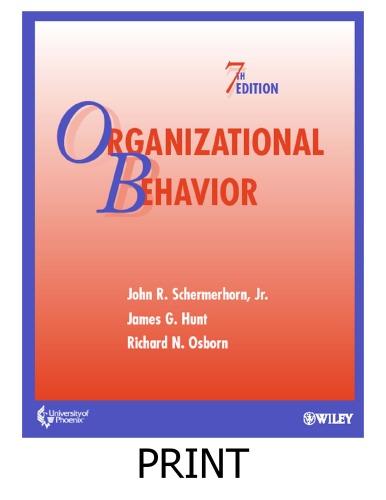McCoys Building Supply Centers of San Marcos, Texas, have been in continuous successful operation for almost 70
Question:
McCoy’s Building Supply Centers of San Marcos, Texas, have been in continuous successful operation for almost 70 years in an increasingly competitive retail business. McCoy’s is one of the nation’s largest family-owned and -managed building-supply companies, with sales topping $400 million. The company serves 10 million customers a year in a regional area currently covering New Mexico, Texas, Oklahoma, Arkansas, Mississippi, and Louisiana in 103 stores employing 1600 employees. McCoy’s strategy has been to occupy a niche in the market of small and medium-sized cities. McCoy’s was originally a roofing business started by Frank McCoy in 1923; roofing remained the company’s primary business until the 1960s, when it began to expand under the management of son, Emmett McCoy.
McCoy’s grounding principle is acquiring and selling the finest quality products that can be found and providing quality service to customers. As an operations-oriented company, McCoy’s has always managed without many layers of management. Managers are asked to concentrate on service-related issues in their stores: get the merchandise on the floor, price it, sell it, and help the customer carry it out. The majority of administrative workload is handled through headquarters so that store employees can concentrate on customer service. The top management team (Emmett McCoy and his two sons, Brian and Mike, who serve as co-presidents) has established 11 teams of managers drawn from the different regions McCoy’s stores cover. The teams meet regularly to discuss new products, better ways for product delivery, and a host of items integral to maintaining customer satisfaction. Team leadership is rotated among the managers. McCoy’s has a workforce of 70 percent full-time and 30 percent part-time employees. McCoy’s philosophy values loyal, adaptable, skilled employees as the most essential element of its overall success. To operationalize this philosophy, the company offers extensive on-the-job training. The path to management involves starting at the store level and learning all facets of operations before advancing into a management program. All management trainees are required to relocate to a number of stores. Most promotions come from within. Managers are rarely recruited from the outside. This may begin to change as the business implements more technology requiring greater reliance on college educated personnel. Permeating all that McCoy’s does is a strong religious belief, including a strong commitment to community. In 1961 Emmett McCoy decided, in the wake of a devastating hurricane, to offer McCoy’s goods to customers at everyday prices rather than charging what the market would bear. This decision helped establish McCoy’s long-standing reputation of fair dealing, a source of pride for all employees, and allowed the company to begin its current expansion perspective. In 1989 McCoy’s became a drug-free company. McCoy’s takes part in the annual National Red Ribbon Campaign, “Choose to Be Drug Free.” McCoy’s also supports Habitat for Humanity in the United States and has provided support for low-income housing in Mexico. Many McCoy family members are Evangelical Christians who believe in their faith through letting their “feet do it”—that is, showing their commitment to God through action, not just talk. Although their beliefs and values permeate the company’s culture in countless ways, one very concrete way is reflected in the title of this case: Never on a Sunday. Even though Sundays are busy business days for retailers, all 103 McCoy’s stores are closed on Sunday.
Review Questions
1. How do the beliefs of the McCoy family form the culture of this company?
2. Can a retailer guided by such strong beliefs compete and survive in the era of gigantic retailers such as Home Depot? If so, how?
3. Is such a strong commitment to social responsibility and ethical standards a help or a hindrance in managing a company?
4. How does a family-owned and -managed company differ from companies managed by outside professionals?
Step by Step Answer:

Organizational Behavior
ISBN: 9780470076255
7th Edition
Authors: John Schermerhorn, James G. Hunt, Richard N. Osborn





